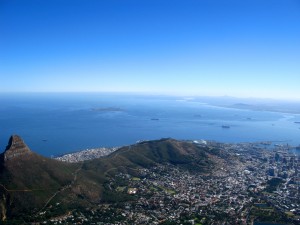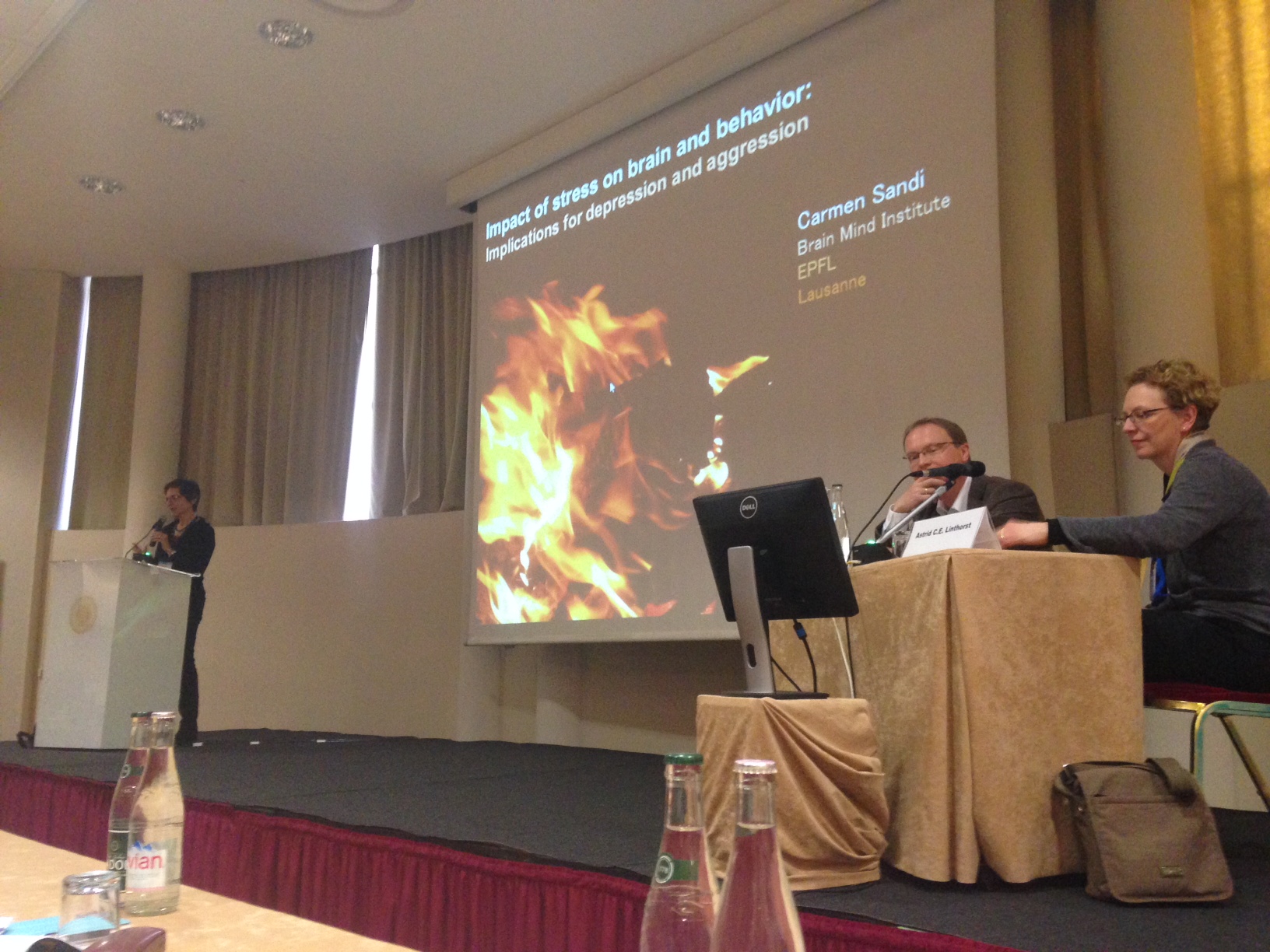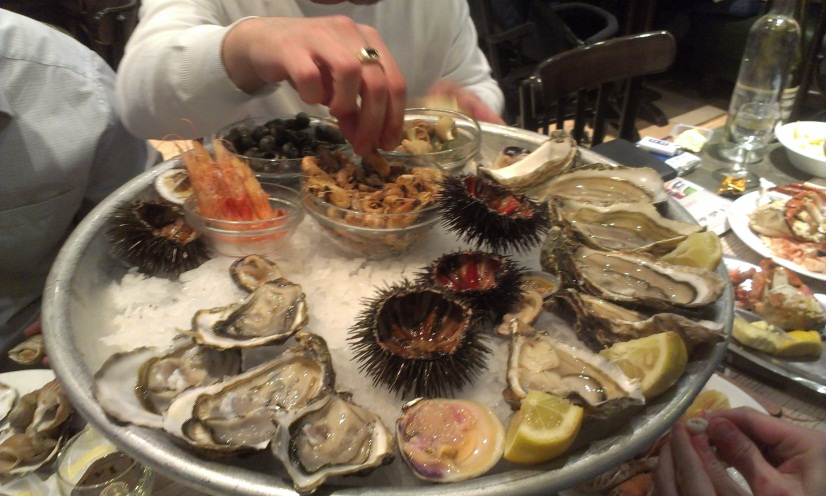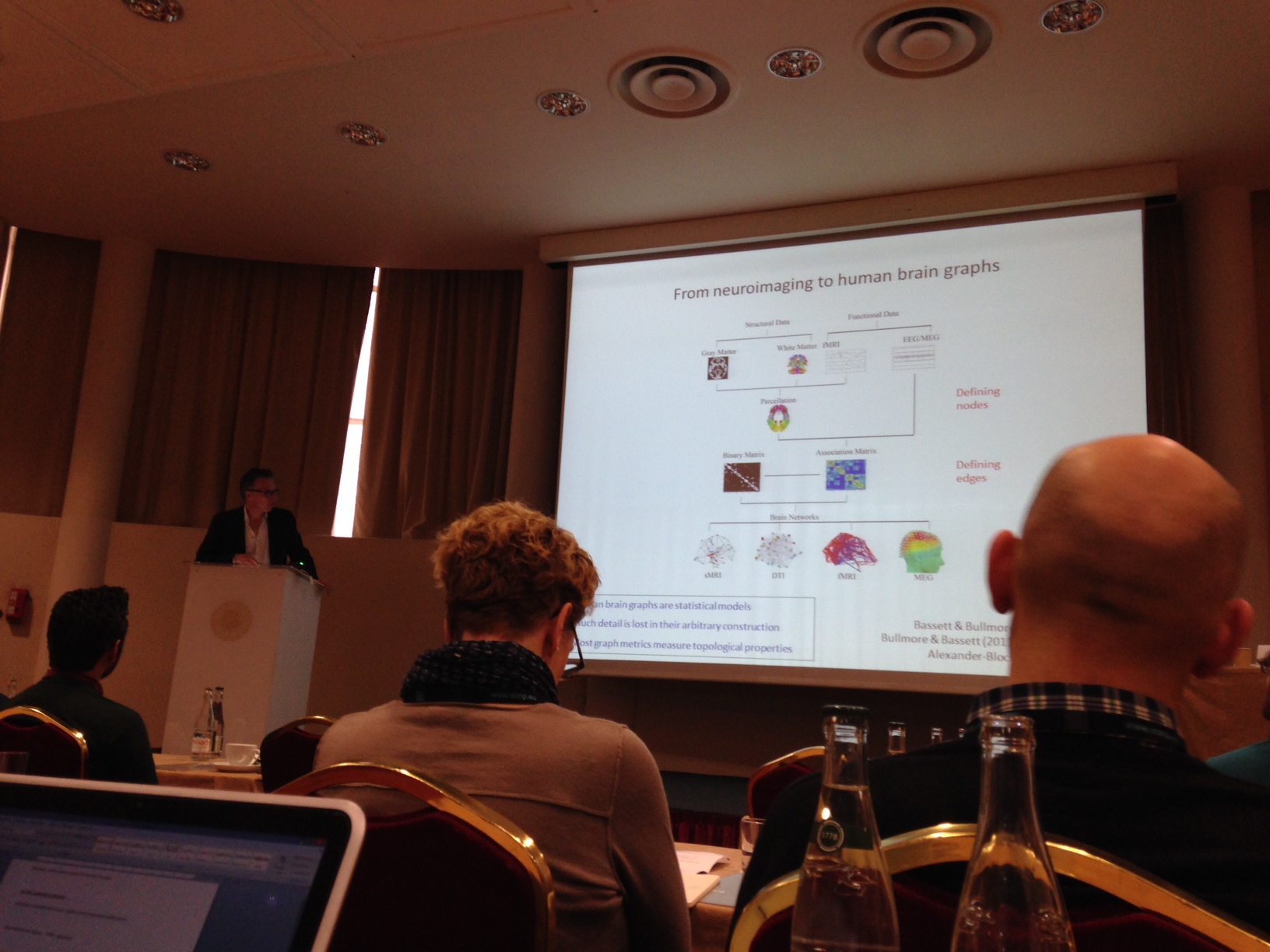Six weeks have passed very quickly – and I am writing this from back in Würzburg. Browsing my notes, reports and photos, the amount and variety of experiences feels simply amazing.
My secondment started with a meeting with Dan Stein and the local MRI experts, Jonathan Ipser and JP Fouche plus Henk van Steenbergen another visitor from Leiden University. During this meeting I got a first impression of the work that is currently done in their workgroup at the Groote Schuur Hospital in Cape Town. Being still a little paralyzed and overwhelmed by South Africa, Cape Town and my new working environment, I was asked about my expectations and interests. I am more than happy that my reply was answered with the opportunity to work on some ‘real’ data in the field of social anxiety disorder.
During the first days Jonathan offered a lot of his time in setting up my workstation and helping me to get into the data. We discussed what research question and what approach would be most interesting. In retrospect I am very happy that we found a good balance between my previous skills and the opportunity to extend these skills. Here it was very helpful that Jonathan worked on a similar project and we could share experience.
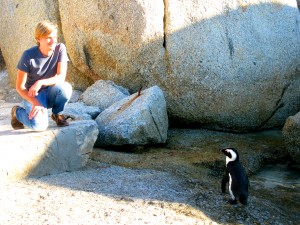
During my secondment I also got in touch with the field of biology: Cape Penguin (Spheniscus demersus)
The comparison between functional connectivity in certain resting-state networks between patients with social anxiety disorder and healthy controls led to some interesting primary results. Unfortunately the time was too short to completely finish the analysis, and to answer some open questions, but I hope to continue working on this now I am back in Würzburg. I had worked on topics related to social anxiety disorder during my Bachelor’s thesis and Master’s thesis before. It is an interesting and multifaceted disorder but also debilitating. It was great that my secondment in Cape Town gave me the space and the opportunity to get back into the recent literature and relate this to my analysis. I also became aware of a lot of methodological and technical issues. In studying functional connectivity it is often not very clear and sometimes even controversial which approach in analyzing data one should follow, and it is a challenge to find the technique that is most valid in answering your research question. I think I picked up some very useful skills which will be very helpful in my future work.
Cape Town University attracts renowned researchers and I benefited a lot from exchanging thoughts and listening to interesting talks while I was here. Even though time was short I am very happy that I also got the opportunity to visit other mental health departments in Cape Town, to see the scanner facilities and learn a little about other imaging modalities such as DTI.
Six weeks South Africa is more than another filled page in your passport. Cape Town offers a beautiful nature and landscape and you get the possibility to get so close to all kinds of animals you would never believe. But on the other hand you never have to miss the vibrancy and cultural offers of urban life because it´s all there. My visit to Cape Town provided me with varied cultural and academic experience. I really enjoyed the possibility in exchanging thoughts and the freedom in following and focusing my interests in the project. It feels like I will benefit a lot from the techniques and skills I learnt during my stay and I am looking forward to working together with the researchers from Cape Town in the future.

